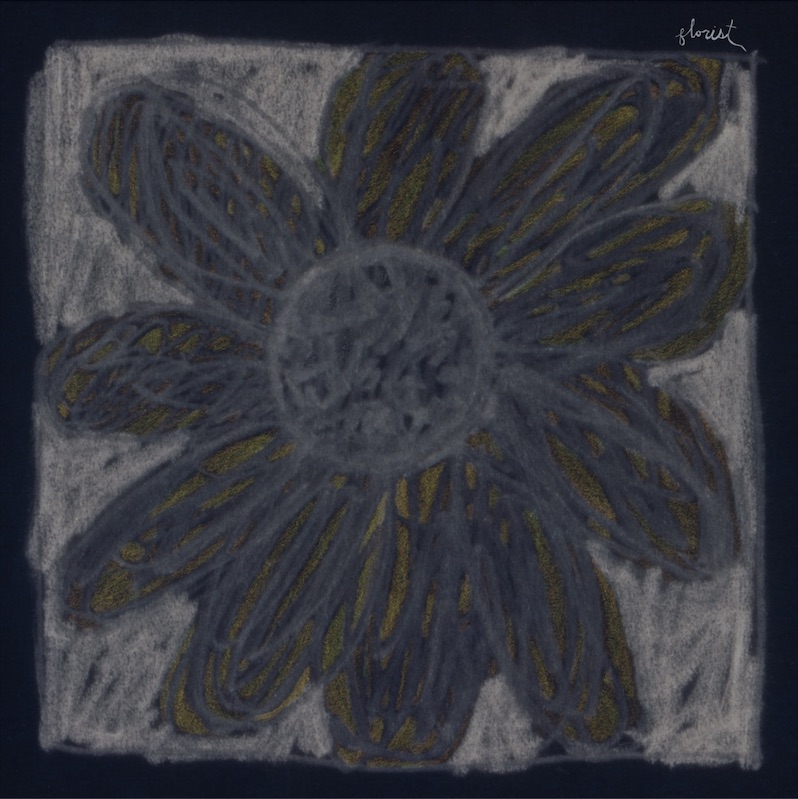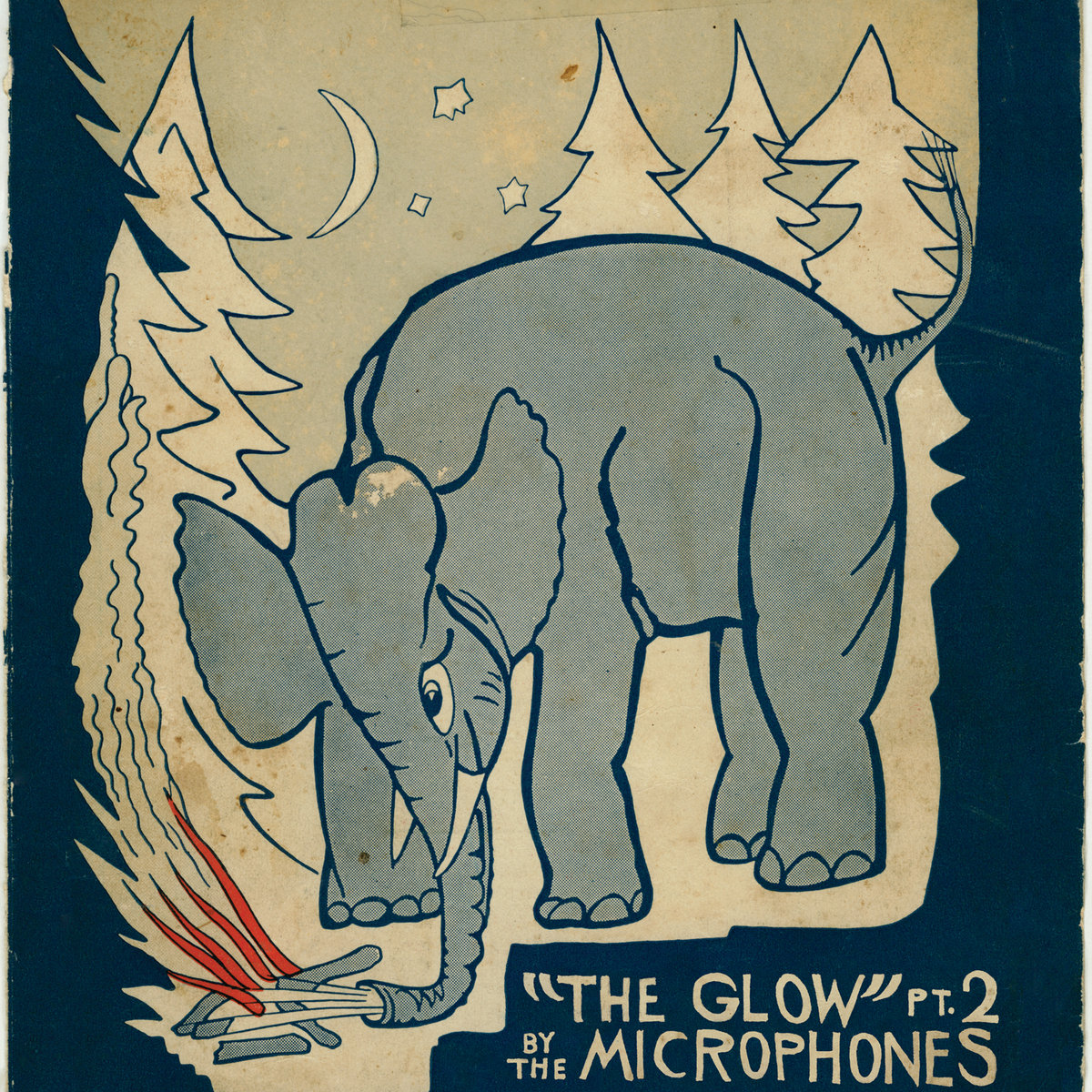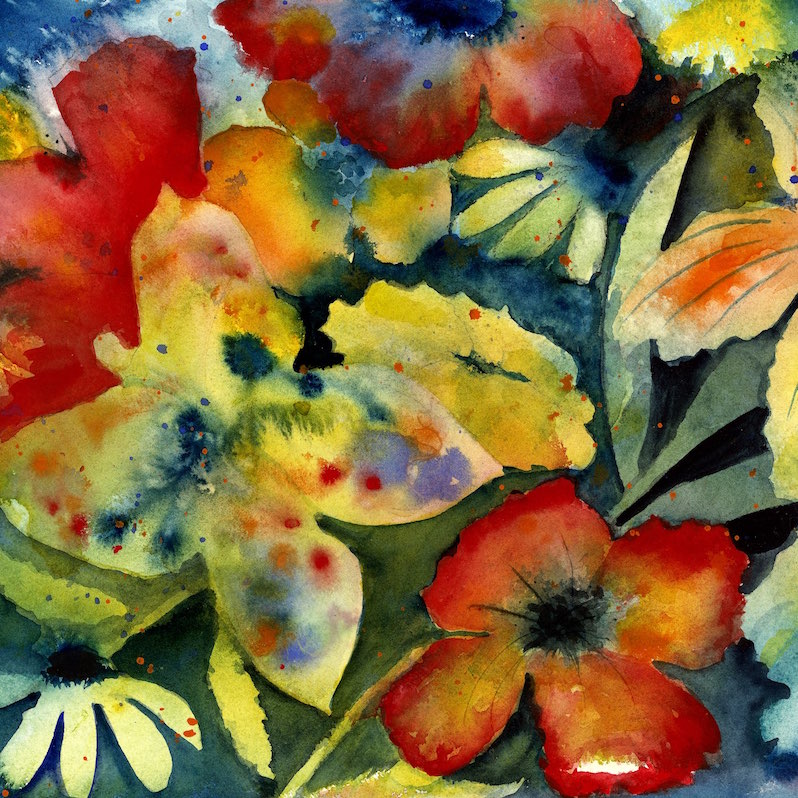Florist : Florist

“I’ve never seen summer like the summer this time,” Emily Sprague sings on “Dandelion,” one of Florist’s side B highlights. Some music seems made for summer nights, and the indie folk group Florist’s new self-titled record arrives midway through the season. The timing feels right—this is an album for when the fireflies come out.
Conventionally speaking, late summer is full of life, but it’s tinged with the awareness of its coming end. Fittingly, many of the lyrics on Florist’s new record reflect on the fullness of life as well as the proximity of loss. Though the songs on this album deal with the beauty and mystery of life, love, friendship, and the natural world, there is a consistent awareness of death as life’s other side. On “Dandelion,” shortly after the line about summer, Sprague puts the song to bed with the repeated phrase, “Let me show you the place where I go when I die.” Elsewhere on the song she sings, “The whole world is a garden that I can’t keep alive.”
Although Florist doesn’t shy away from loss, it’s clear throughout the record that loss isn’t possible without love. As such, lines like “Love and friendship running through the garden” coexist with and give way to lines like “Learning about the places we can’t / Access without a bit of death,” embodying the duality of late summer. Sprague’s lyrics throughout the record are in a similar spirit, documenting the arrival of a kind of wisdom that’s easy to agree with but hard to internalize. To love the world deeply, the record seems to suggest, is to be especially attuned to loss. Such awareness, however, can make existence feel positively miraculous, and that sense of the overwhelming mystery of life permeates the record. From the moving penultimate track “Feathers”: “You are the feather / The mystery of dreams and existence.”
It’s the mystery of everyday existence that informs the mixture of the mundane with the otherworldly throughout Florist. On “43” the quotidian image of the speaker’s window held open by a two-by-four gives way to the speaker wishing for aliens to come in through that very window—the everyday here is quite literally a portal to the extraordinary. This duality is encapsulated later in the song when Sprague sings, “We had a home once / What a funny thing / We had a home once / Supernaturally.”
Musically, Florist exhibits a corresponding duality. One of the things which makes the album so enjoyable front to back is the effortless balance (even more so than on previous records) between folk songs and ambient instrumentals, which are far too textured and substantial to be considered mere interludes. The song “Red Bird Pt 2 (Morning),” the album’s lead single and a sequel of sorts to “Red Bird” off of 2017’s gorgeous If Blue Could Be Happiness, is followed by “Duet for Guitar and Rain.” The title says it all—a gentle guitar instrumental overlaps with a recording of rain falling. It’s a beautiful short piece, recalling, like many of the instrumentals on the record, classic ambient works which make use of field recordings such as Ernest Hood’s 1975 album Neighborhoods and Virginia Astley’s 1983 debut From Gardens Where We Feel Secure (another great summer record). The use of synth and field recordings on songs featuring vocals ensures that the folk songs often echo the instrumentals, and vice versa.
The interwoven nature of the album’s overall composition makes for a rich, rewarding listen, and it may have something to do with the way the band’s first self-titled album came together. In the lead-up to its release Sprague spoke of how the group composed Florist while living and recording together for a month—saying it was the first time the group had convened to cut a record in such a concentrated manner. Describing this album, Sprague says, “It’s our one life… These are my best friends.”
Label: Double Double Whammy
Year: 2022
Similar Albums:




